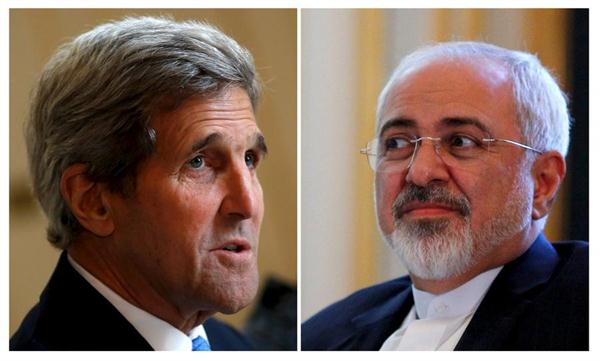 |
|
This combination picture shows U.S. Secretary of State John Kerry (L) during a meeting at a hotel in Vienna on July 1, 2015 and Iranian Foreign Minister Mohammad Javad Zarif during a meeting at a hotel in Vienna, Austria, on July 3, 2015. [Photo/Agencies] |
The deadline to reach a long-term comprehensive deal on the Iranian nuclear issue was extended last month from June 30 to July 7 in Vienna. The world has never been so close to resolving the Iranian nuclear issue, as US Secretary of State John Kerry said on Monday, but a number of unresolved issues could still let this hard-won opportunity slip, which would be a shame.
Before the latest round of talks began, Foreign Minister Wang Yi was optimistic about the outcome and reiterated that China has played a constructive role in the marathon negotiations over the past 16 months.
After the ice-breaking telephone conversation between US President Barack Obama and Iranian President Hassan Rouhani in September, 2013, Iran and P5+1 - the five permanent UN Security Council members, the United States, Britain, France, Russia and China plus Germany - have been engaged in on-and-off talks. After agreeing on a framework of understanding in April, they set June 30 as the deadline for reaching a final deal, which was later deferred to July 7. And during earlier talks, Iran agreed to suspend some sensitive nuclear activities while Western countries promised to lift part of the sanctions on Teheran.
But now there are concerns the July 7 deadline too might not yield a deal - the third one to fail after November and June. Pessimists cite two major obstacles that were dragged into the last stage of the talks for the situation.
Kerry and Iranian Foreign Minister Javad Zarif were locked in negotiations throughout Monday, with the former saying some "hard choices" have to be made to reach a deal by Tuesday. Teheran and the West have hardened their stance because of two principal differences.
The first is: How Iran can be fully compliant with the Treaty on the Non-Proliferation of Nuclear Weapons? While the West insists Teheran should give international nuclear inspectors access to its military facilities to verify its nuclear-related activities, Iran sees such requests as demands that go beyond its obligation to the NPT. In fact, Iran's supreme leader Ayatollah Ali Khamenei reiterated before the Vienna talks that UN inspectors would not be allowed to inspect the country's military sites.
The second obstacle is over the West's timetable to lift sanctions on Iran. The West says the sanctions can only be lifted step by step, which could take several years, but Iran insists once a final deal is struck most of the sanctions should be lifted.
As such, it seems the gap can be bridged only if the two sides compromise and take one step back. The deep-rooted distrust between Teheran and Washington since Iran's Islamic Revolution in 1979 is believed to be the main reason why the talks have been dragging on. The US backed Iraq in the war against Iran in the 1980s. The US has also imposed rounds of sanctions to thwart Iran's nuclear ambitions, seriously hurting the country's economy.
The US-Iran "standoff" is thus a result of the US' Middle East policy, characterized by intervention and confrontation. At least to help restore peace and sanity to the region, the US should change its much-loathed policy and show the world it is sincere about building political trust with Iran.
The US and Iran both know the importance of a rapprochement, or else they would not have shared the negotiating table. Now they have to realize that this is the time to take the decisive steps toward reconciliation, or this golden opportunity to end the long-standing standoff will slip by.
The two sides have to be more flexible and show more political courage. And the other countries involved in the talks should know that allowing the deadline to expire without a deal would be a blow to the confidence of the international community to resolve the issue peacefully and leave little room for diplomatic maneuvering.
The author is a senior writer with China Daily. wanghui@chinadaily.com.cn